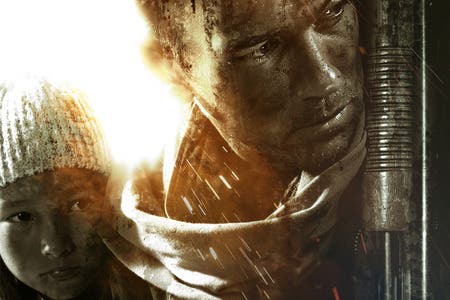Robert Bowling details his upcoming series Human Element
UPDATE: Bowling addresses concerns about his studio's size.
Update: Many of you voiced concern over the size of Robotoki in the comments. We followed up with Bowling for clarification. Here is his official response:
"I saw the concerns, happily they're unfounded and all rooted in one post by a Twitter user who posted such claims."
"Robotoki is new indie development start up, registered in Los Angeles county California with our first project Human Element in pre-production phases of development. The core eight-persons staff of Robotoki have all been focused on writing and securing tech, however with full production beginning on the Human Element prequels for Ouya this month, that focus and staff will drastically expand over the course of the following six months, however writing will always be a main priority throughout development. Anyone interest in applying at Robotoki or with questions regarding employment, they can reach us at work@robotoki.com."
Original story: Ex-Call of Duty creative strategist Robert Bowling has detailed his upcoming survival franchise Human Element, an ambitious project spread across several genres on multiple platforms.
The first project by his new studio Robotoki, Human Element's main course will be a first-person game set to appear on next gen consoles in 2015, but before that Bowling wants to make a series of episodic Ouya-exclusive prequels detailing the zombie apocalypse that leads up to the next gen game set 35 years later.
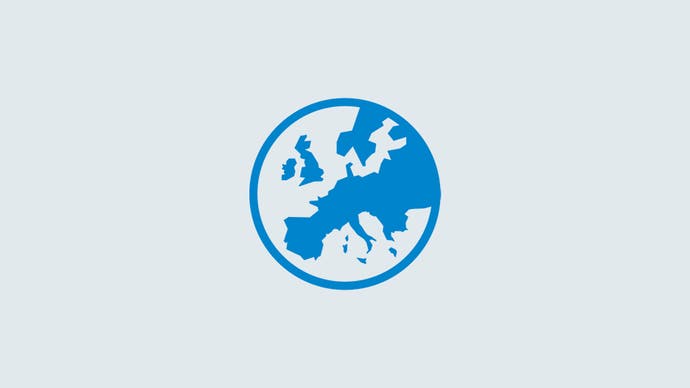
"So why Ouya?" we asked him in a recent interview. He explained that this was due to the flexibility of developing for the platform. It would allow Robotoki to quickly churn out new ideas and get feedback from tens of thousands of really passionate people.
"At launch it's going to have 50,000 super hardcore backers and when you're an early adopter like that - when you latch onto something like a new console - you are extremely passionate. You are extremely emotionally and intellectually invested in what they're doing. And that's the type of audience I think we need to address with these episodes. Having 50,000 people who are emotionally invested in what you're trying to deliver on that platform is going to be extremely beneficial for us down the road."
Besides the passionate fanbase, Bowling explained that the platform's open model allows Robotoki the freedom to experiment with all sorts of different genres and mechanics as a testing ground for what to keep and alter for the 2015 game.
"That allows us the flexibility and the freedom creatively to use it as a testbed for all these rapidly prototyped mechanic and gameplay experiences that maybe are too costly and risky to dedicate a full priority list to on another platform."
The Human Element prequel isn't going to constrict itself to a unified set of mechanics and each episode will try out a different genre set around the overall concept of survival.
"With each episode I really want to focus the scope around either a specific mechanic or an experience that we're trying to deliver."
"Say episode one could be focused on the fortification aspect of survival; finding your location, finding supplies, building fortifications to secure it, building alarm systems within it so you know when it's breached... nailing what makes that fun and exciting and thrilling in a survival scenario. And then once we do that in episode one, episode two could be completely different."
"[Ouya] allows us the flexibility and the freedom creatively to use it as a testbed for all these rapidly prototyped mechanic and gameplay experiences that maybe are too costly and risky to dedicate a full priority list to on another platform."
Robert Bowling, President, Robotoki
"Episode two could be focused on going out in this world, dealing with that human element much more. Dealing with other survivors, dealing with the moral choices you need to make when you come across scenarios, knowing that you could always fall back to that safe haven you built in the first episode."
Despite the disparate gameplay genres the episodic prequels will experiment with, they'll all be tied together in a persistent world.
"You are playing the same character," Bowling confirmed. "This is a progressive experience regardless of what device you're playing it on. The device only determines the gameplay, the experience, the specific way you interface with this universe, but it allows you to continue on your progression of the story."
This persistent narrative that weaves through the different episodes and into the main game can be heavily influenced by other players as well. This is not a game in a vacuum with meticulously placed health packs and ammo, but much more of a dynamic sandbox influenced by the populace.
"The actions of other people impact your state of life. Whether that's through the quantity of supplies that are in your area, the quantity of undead that are in your area, the quantity of survivors in your area and the state of things."
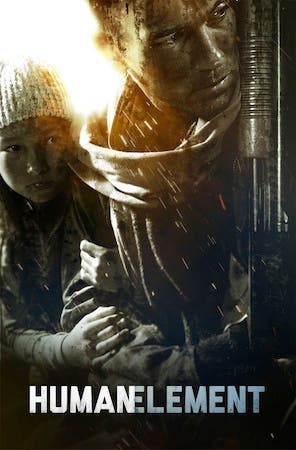
This social aspect is tied to the games' cross-platform play, so players needn't even play the same exact game to play together.
"In this day and age, there are so many different types of players. For me, I love the at home experience. I love the immersion of sitting in front of a TV or a monitor and getting pulled into that world. But there are other players that don't." Bowling explained that plenty of other players either don't have time or don't have interest in that mechanic, so they'd prefer the top-down strategy gameplay that comes with the mobile versions. "They just don't want that first-person experience, but they're still intrigued by the universe. They're still intrigued by the characters and the scenarios and they want to be a part of that. So this is giving them a way to play with me without playing beside me."
"They're playing the type of gameplay they want to play. I'll use the example of the mobile. They're playing the top-down strategy resource management game, scavenging and fortifying their locations on there. But because we have an alliance in the Human Element regardless of what platform we're playing on, they can share stats or they can share supplies that they've gathered in their worlds with the group."
He gave an example where he could play as a character with high strength and low intelligence who could build fortifications quickly, but they wouldn't be very durable. But if he played with someone with high intelligence, they could share their knowledge to help their comrade put that muscle to better use.
"At what point do you fall back on your moral values out of necessity to survive?"
Robert Bowling, President, Robotoki
Bowling explained that social ties come in three levels: identity, alliance, and community.
Identity is who you are independent from the rest of the world. It's chosen at the beginning of the game where you decide if you want to survive alone, with another adult, or with a child."That effects the individual scenarios that you come across," Bowling explained.
"Then you have the ability to create alliances with other classes of people, because we want to encourage you that there is strength in numbers." Right now alliances are set at five people, but that's subject to change.
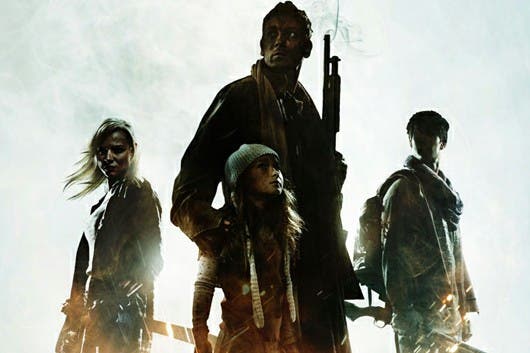
Then there's community. "Different alliances could team up together based on being in the same proximity and create communities which then give buildings or fortification stat buffs based on that alliance as a community."
Using team work to gather resources is extraordinarily important as items are finite and shared among many. "There are a set number of supplies in this world and when a supply is taken from a location it is not removed from this world. It's just now assigned to an individual. That individual can do with it as he pleases. Maybe he chooses to barter it, maybe he chooses to horde it. Maybe he chooses to trade it in exchange for something else, like someone threatening his life. But it is always on this person and if he dies you can scavenge it."
"If there's one person hoarding all the medical supplies in this area that's going to change the dynamic of how you survive with this group of people, because suddenly there's now this power structure. Suddenly this guy has something that everyone else needs and he is a position to have a sort of rule out of pure necessity over these people... What interests me is the moral and emotional scenarios of what would come of a scenario like that."
"At what point do you fall back on your moral values out of necessity to survive?"
Another forward-thinking tool Robotoki is using is GPS integration, which many complained about thinking it would take too much effort.
To this Bowling replied, "If that's not what you want to do, then don't do it. All the mobile element does is extend the game universe outside of the living room. We're trying to take as much gamification out of the game as possible. We really don't want the boundaries and the technology that limits us in a videogame to limit our gameplay experience."
"The at home experience of when you're playing in this world - that is your at home experience in the game. You have your safe house, you have wherever you can walk to in-game and that's your world. But if you go out and you travel out and about in real life, then why can't we take we take that mentality of traveling out and about in the real world? You're out there traveling, so there's no reason to me why you shouldn't be able to open up your mobile device, pull in your real world location, and make use of being out and about."
"I think the backlash comes when people think we're going to force you to stop playing the game and go outside. That is not what this is... We know we've done a good job when your wife or girlfriend texts you and she's like 'Hey, I'm at Target. Do you need anything?' And you start texting her back, 'I need nails, boards, some tripwire,' and you start giving her supplies that you know she can find at Target to bring back home to you because you have an alliance. Because she plays Human Element on her phone, she can check in there and get supplies and share that with the alliance so you can maintain your fortification. It allows you more options to engage in the world, it doesn't limit how you can enjoy the at home experience if that's all you choose to play."
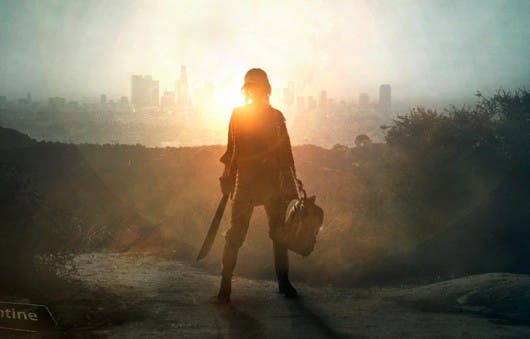
"Everything in this world is based on narrative."
Robert Bowling, President, Robotoki
"Because the state of the world dynamically changes based on the actions of those people, that constantly keeps an influx of supplies entering and leaving this world that you normally wouldn't get if it was all contained in that one experience."
When asked if the playable characters would be voiced, Bowling said that they would be. "The thinking is this is going to be all voice-acted dialogue. This is not a silent character."
"Everything in this world is based on narrative. Your character and your story and how you respond to things is part of that narrative, so I think it really pulls everything in together... your individual decisions on how you approach this world and how you approach each scenario is so key to your individual story that I think you have to be part of that narrative and you have to be part of that storytelling."
Despite the various ways people can have an impact on the world Bowling was quick to point out that Human Element is not an MMO and that most people you encounter will be NPCs. "This is not focused on being a traditional MMO experience. There are ways to bring in other people into your world, but this is mostly about you and your individual story and how the actions and limited direct impact of other people have on the state of it."
Ultimately, the Human Element comes back to a novel Bowling began called The Parents' Guide to a Zombie Apocalypse.
"It was a take on a parenting book, but after the zombie apocalypse has already occurred. It got me thinking, when I was younger and had no responsibilities, my zombie survival plan with me and my friends was very action focused. I was killing zombies, I was fighting survivors, all I cared about was how fast could I get out of the city at any cost."
This all changed when Bowling had a daughter. "Once I had a family, I thought back to my plan and none of it was relevant anymore. I realised that all the decisions I was prepared to make in my 21 year old zombie apocalypse no longer applied to me... I'd be avoiding confrontations, I'd want to rebuild some semblance of society, I'd want to be focused on fortification, I'd want to be moving only at night so we didn't have to come across people. My strategy had changed. When I realised how drastically my plan and my outlook on survival and what survival actually means changed based on my individual scenario, that's when I started getting excited about all the different possibilities you could go with that sort of premise."
